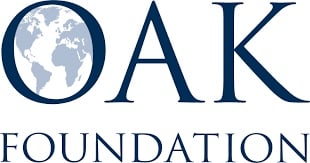A series of five regional congresses
The 4WSFC AFRICA
“Leading by Examples: Leaderships in Sustainable Small-Scale Fisheries”
Location: Cape Town, South Africa
Date: November 21-23, 2022
Background
The 4th World Small-Scale Fisheries Congress (4WSFC) is a transdisciplinary forum for all stakeholders involved in small-scale fisheries to participate in an interactive discussion about the world’s small-scale fisheries and how to sustain its multiple social, economic and environmental benefits. The purpose of the congress is to facilitate knowledge exchange, foster collaboration, and mobilize support for the viability and sustainability of small-scale fisheries especially in the developing world. Considering the Covid-19 global pandemic, and recognizing the need to strengthen regional networks and organizations, the 4WSFC will take place in five regions of the world.
The 4WSFC coincides with the International Year for Artisanal Fisheries and Aquaculture (IYAFA 2022), declared by the United Nations to recognize the contributions of small-scale fisheries and aquaculture to livelihoods, food and nutritional security, emphasizing the necessity for everyone to take actions to support the sector. The regional congresses are organized to celebrate IYAFA 2022, as well as to build research and governance capacity, and to strengthen local and regional organizations and networks, in order to support the implementation of the ‘Voluntary Guidelines for Securing Sustainable Small-Scale Fisheries in the Context of Food Security and Poverty Eradication’ (SSF Guidelines).
Further, to contribute to the 2030 Agenda for Sustainable Development, especially the Sustainable Development Goal (SDG) 14 ‘Life Below Water,’ the regional congresses aim to highlight the fundamental role that small-scale fisheries play in achieving all SDGs, since they are closely connected to ‘Life Above Water.’ Finally, given the heightened interest around Blue Growth and Blue Economy initiatives, the regional congresses provide a platform to discuss how these initiatives can be designed with the characteristics and the values of small-scale fisheries in mind (see Blue Justice for Small-Scale Fisheries), and with programs that foster the current and potential contribution of small-scale to achieve sustainable ocean economy, including through the development of critical market infrastructures and value chains focusing on small-scale fisheries products.
Thematic programs
The congress theme for the 4WSFC AFRICA, ‘Leading by Examples: Leaderships for Sustainable Small-Scale Fisheries,’ recognizes the many examples, lessons and experiences that individual, communities, governments, inter-governmental organizations, and other supporting institutions have in the efforts to build and enhance capacity for sustainable small-scale fisheries. The focus on “leaderships” is a tribute to the immense progress that has been made in the past decade by all sectors, in elevating the profile of small-scale fisheries and in advancing understanding about them. It is also meant to inspire more actions and collaboration to continue to promote and support small-scale fisheries.
While many of the challenges facing small-scale fisheries in Africa are common in other regions, some are unique, requiring innovative solutions at local, national and regional levels. In addition to exchanging knowledge and lessons about what works well and what needs further consideration in securing sustainable future for small-scale fisheries in Africa, the congress offers a platform for deliberation about how to integrate small-scale fisheries in the discussion about Blue Economy, keeping in mind principles such as social justice, gender equity and others promoted in the SSF Guidelines.
Through interactive sessions and discussion, and with an aim to strengthen existing collaboration and build new partnership, the 4WSFC Africa congress will be organized around six main topics, to demonstrate how existing and potential leaderships in small-scale fisheries can lead to better mutual outcomes.
- Leaders in Action Research
- Leaders in Blue Justice
- Leaders in Business & Social Innovation
- Leaders in Climate-Friendly Food System
- Leaders in Community-Based Conservation
- Leaders in Gender Equity
Participation
We invite participation from fishers and fishing communities, industry, governments and intergovernmental organizations, financial institutions, civil society, and academia, interested in small-scale fisheries sustainability in Africa. We encourage delegates from around the continent, as well as some international researchers working in Africa, to join the congress ‘in-person’ in Cape Town. While we anticipate having about 150 ‘in-person’ participants, we will extend an invitation to delegates who wish to join virtually through the congress live-streaming platform.
The 4WSFC AFRICA is co-hosted by the Institute of Poverty, Land and Agrarian Studies (PLAAS), University of Western Cape, South Africa, in partnership with TBTI Global. We welcome organizations interested in supporting sustainable small-scale fisheries to join as partners to this initiative and help contribute to the development of the congress program and to support the participation of delegates.
Call for contributions are now opened and submission can be in various formats, such as individual papers, sessions, panel discussion, and video and documentaries. Visit www.4wsfcongress.com or email 4wsfcongress@gmail.com for more information.
Abstracts for individual papers or organized sessions (about 250 words) are accepted until June 15, 2022.
Expected outcomes
The 4WSFC AFRICA Congress is the premier venue that highlights progress and advancement in research, governance and capacity development by multiple stakeholders (government and non-government), and that take lessons from these efforts to promote and support sustainable small-scale fisheries in Africa and beyond. It also serves as an opportunity to enhance knowledge and information sharing, to strengthen local organizations and build regional network building, and to discuss pathways towards sustainable small-scale fisheries in Africa, in the context of the SSF Guidelines and the Blue Economy. Thus, the expected outcomes from the congress include:
- Learning and knowledge sharing among congress participants about key aspects of small-scale fisheries in Africa, including values and contributions, along with concerns and challenges facing the sector;
- Contributing key messages from the congress to the IYAFA Celebration;
- Training, mentoring and networking of early career researchers and professionals in small-scale fisheries;
- An establishment of the “TBTI Africa” network to continue to work collaboratively on small-scale fisheries; and
- Congress proceedings that include presentations and highlights from the discussion, as well as actions and recommendations about “Pathways towards sustainable small-scale fisheries in Africa”.
- Contributing chapters to the new TBTI E-Book tentatively titled “The World of Small-Scale Fisheries: Legacy and Prospect.”





